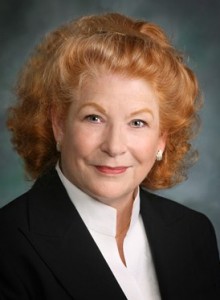Kathleen Sindell, Ph.D. Receives the
2017 Norma Severns Award for Leadership
GCSRi Publishing is pleased to announce personal finance expert Kathleen Sindell, Ph.D. has received the 2017 Financial Planning Association, National Capital Area (FPA NCA) Norma Severns Leadership Award. The Norma Severns Leadership Award is annually presented to an individual who displays extraordinary efforts to advocate for ethical and objective financial planning and to advance the FPANCA’s mission to adhere to the highest ethical and professional standards.
Dr. Kathleen Sindell has been a member of FPA NCA since 2008 and was nominated by her peers. Dr. Sindell was an FPA Annual Conference Task Force Member, on the FPA NCA Board of Directors for seven years, and is an Editorial Advisory Board Member for the Journal of Financial Planning.
About FPA NCA
FPA NCA is one of the largest chapters in the country with over 900 members. It is the preeminent organization for financial planning professionals in the Washington, DC area, including the District of Columbia, suburban Maryland, and Northern Virginia. The FPA NCA provides a forum for education and career development for its members while adhering to the highest ethical and professional standards. www.fpanca.org
About Kathleen Sindell, Ph.D.
Dr. Sindell is the author of numerous academic, popular, and professional finance articles, Web sites, proposals, and books, including the bestselling reference book, “Investing Online for Dummies, Eds 1-5” (listed for two consecutive years on the Wall Street Journal’s Bestselling Business Book List). Her most recent book “Social Security: Maximize your Benefits” her 14th finance / business reference book.
Kathleen Sindell, Ph.D. has over 25-years of experience in designing and developing learning objectives, instructional activities and curriculum using adult learning principles and various media and tools to achieve maximum results in the shortest time. Dr. Sindell is certified to teach Business and Industrial Management, Banking and Finance by the California Board of Governors (Certificate #19507). Dr. Sindell has held academic positions in business and finance at the University of Maryland University College (UMUC) and the Johns Hopkins University.
Sindell was a practitioner faculty member of the Johns Hopkins University Carey School of Business for 16 years. At UMUC she is a full professor (adjunct) and Chair of the Certified Financial Planner (CFP) Program. She successfully worked for the initial approval of the CFP program and oversaw the renewal of the CFP program registration. The CFP Board granted the UMUC CFP program renewal with “commendation.” Sindell assisted in the development of a UMUC CFP Advisory Board and UMUC Financial Planning Association (FPA) Student Chapter. Dr. Sindell develops and teaches the CFP Board approved courses of Financial Wealth Building, Health and Life Insurance, Investing, Retirement and Estate Planning, and the Financial Plan Development Capstone course. Contact Kathleen Sindell, Ph.D. at ksindell@kathleensindell.com.



